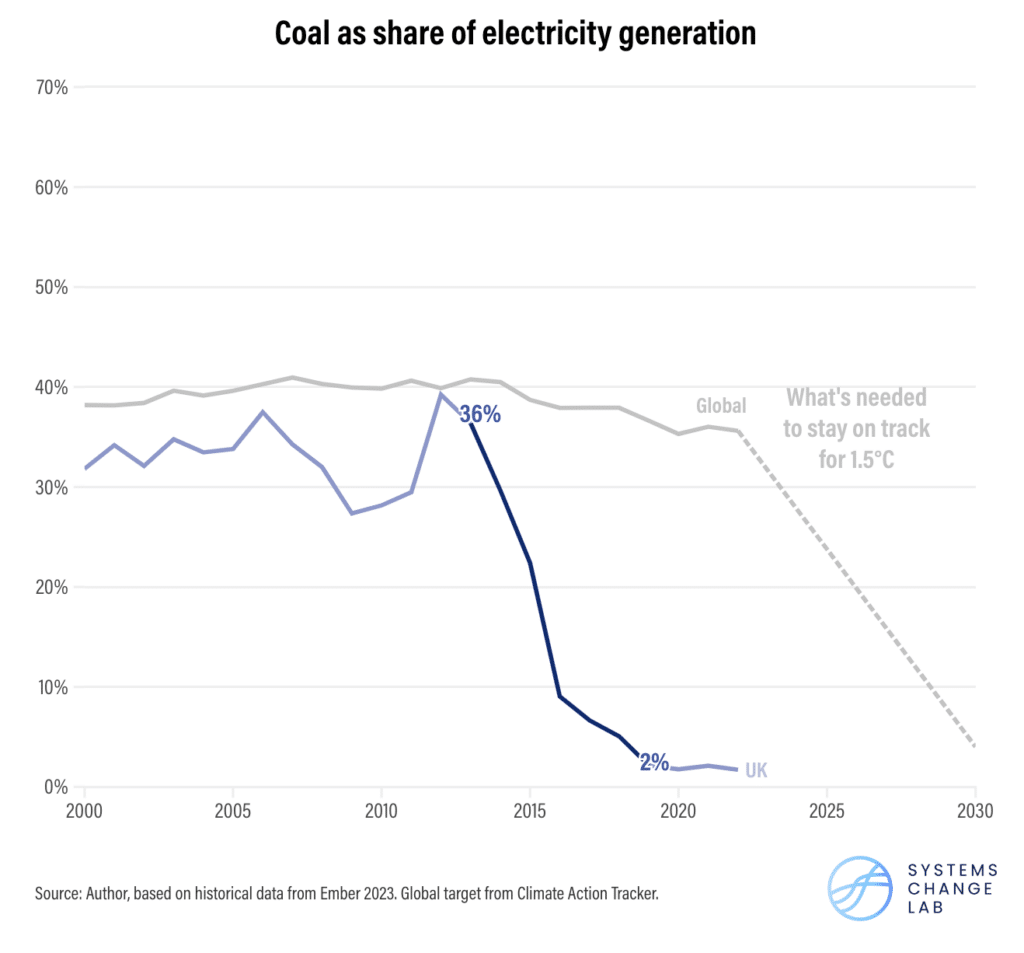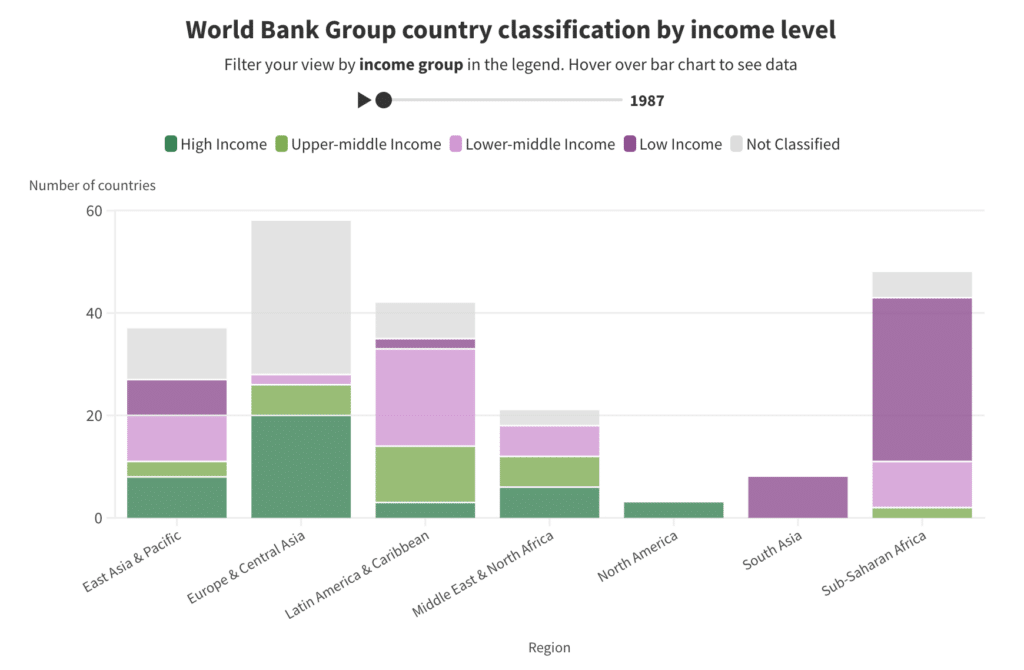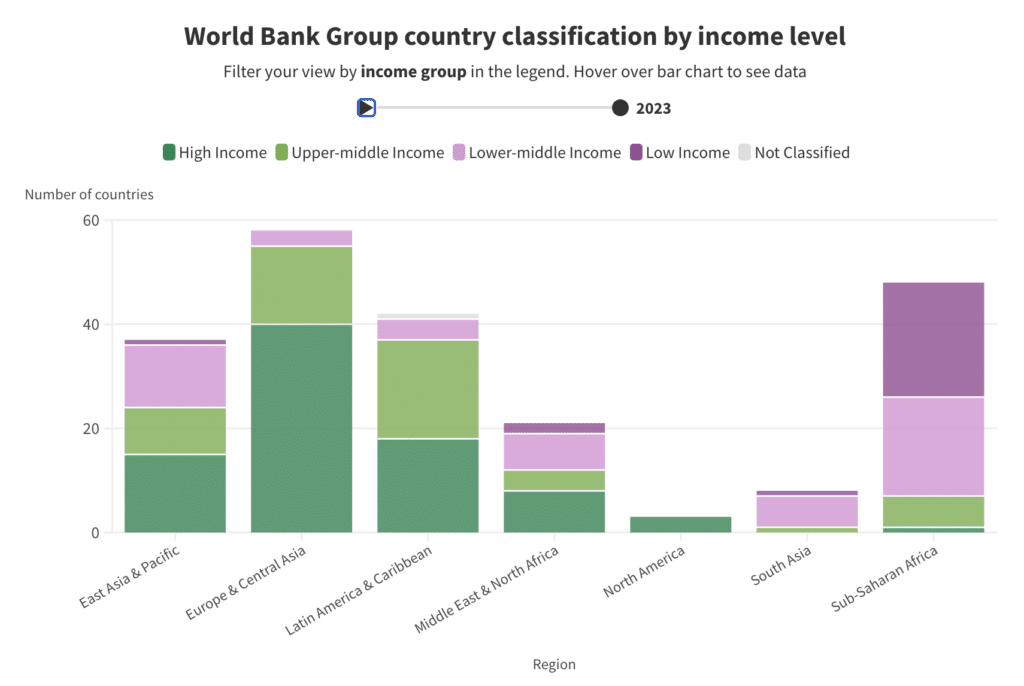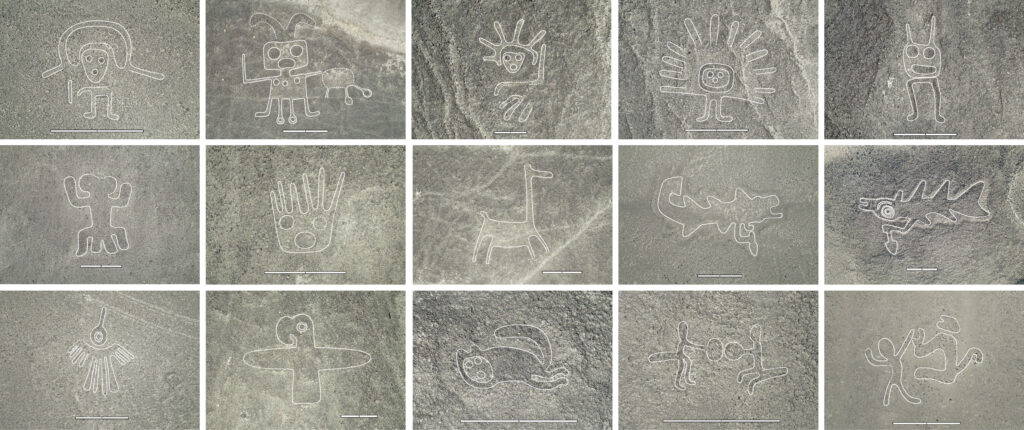Volcanoes are erupting in The Philippines, but on-fire Australia received some welcome rain. The Iran war cries have been called off and The Donald’s military powers are about to be hamstrung by the Senate. Meanwhile, his impeachment trial is starting, and we’re all on Twitter for a front-row seat.
What Could Go Right? The Best News of 2024
A roundup of progress worldwide from the past year
This is our weekly newsletter, What Could Go Right? Sign up here to receive it in your inbox every Thursday at 5am ET. You can read past issues here.
The Best News of 2024
This year was one of great change, in which over a billion people, the highest number in history, participated in an election in their country. Conflict worsened across the globe, in the Middle East, Europe, and Africa, and December gave us several last-minute contenders for most unexpected political drama.
But you probably know all of those (mostly) dark stories already. Our operating principle here at The Progress Network is to shine a light on the stories of progress that don’t reach your inboxes and social media feeds. These steps forward occur every day, under our noses, and there were plenty across the globe in 2024.
Like our roundup of United States–based progress that we published last week, below you’ll find the best things from around the world that happened in 2024. The list is not comprehensive, but represents the year’s most notable developments. (And like last week, some of the stories include data from previous years that were released this year.)
Whether you read our newsletter, listen to our podcast, or follow us on social media, thank you for engaging with The Progress Network this year. Please consider sharing our work with friends and family, and we’ll see you again in 2025! Happy Holidays. 🎊
Environment
Greenhouse gas emissions in the European Union fell by eight percent in 2023, a drop so steep that it’s close to the one that occurred when daily activities were shuttered at the start of the Covid-19 pandemic. The closing of coal plants and the switch to renewable energy has brought sustainable change to the region, which has now cut emissions by 37 percent from 1990 levels. The target is to cut them 55 percent by 2030.
The renewable energy expansion continued to break records this year. Particularly in the electricity sector, development has been swift. The International Energy Agency (IEA) forecasts that the share of global energy from renewables in that sector will jump from 30% in 2023 to 46% in 2030, with solar and wind predominating. In OECD countries, renewables and nuclear already account for 49% of total electricity generation.
Several countries are on track to reach 100 percent renewable electricity by the end of the decade.
In September, the United Kingdom shut down its last coal-powered plant, joining a handful of countries on earth that have entirely phased out coal.

Other nations, such as Chile, Denmark, and Greece, have also rapidly transitioned away from coal in recent years. The United States is shifting away from the fuel as well, albeit more slowly. China and India, however, remain the world’s two biggest users and producers of coal, and it will be king in those countries for decades to come.
(Lost on where we are overall with climate change and the green energy transition? We have an overview here—we have made some gains since the Paris Agreement was signed in 2015, but still have a long way to go. Emissions worldwide are still rising, when they need to be in sharp decline.)
Despite worry that low-lying tropical island nations like the Maldives would be sunk underneath rising seas, recent research has shown the opposite. Over the years, these islands have shifted in shape, but by and large not lost any of their size as waves have kept piling sediment on their shores.
For the first time, research showed that levels of hydrochlorofluorocarbons, which eat away at the ozone, have been falling since 2021. Previous research estimated that levels would begin dropping in 2026.
Economy
The world is in recovery, albeit an uneven one, post-Covid, with inflation continuing to decline. After a surge due to the pandemic, global extreme poverty has returned to pre-pandemic levels, although it’s still higher than pre-pandemic in the world’s poorest countries. Poverty has become increasingly concentrated in sub-Saharan Africa, in fragile nations with historically low economic growth.
The global picture of poverty has changed so much that going forward, the World Bank will report on global poverty levels using two indicators. Living on $2.15 a day will be kept as a standard for extreme poverty, while living on $6.85 per day will be set as a poverty indicator more appropriate for middle-income countries.
This reflects a fundamental shift from the 1990s, when many more countries that are now classified as middle income were low income:


Ukraine, Algeria, Mongolia, and Iran moved into the upper-middle income category, and Bulgaria, Russia, and the western Pacific island nation of Palau became high income in 2024. Only one country, the West Bank and Gaza, moved into a lower income category this year.
India eliminated extreme poverty this year, defined within its borders as living on $1.90 per day. It has also made significant headway in reducing poverty, defined as living on $3.20 per day.
Science & Technology
There were many technological firsts this year:
- SpaceX completed the first private spacewalk in history.
- China became the first country to land on the far side of the Moon, bringing back the first-ever samples from there.
- Human blood stem cells were made in a laboratory for the first time. Blood stem cells can be lost during the course of treatment for various cancers, necessitating stem cell transplants; if this new method can work in humans, the stem cells could be produced from the actual patient.
- A woman with type 1 diabetes began producing her own insulin for the first time after receiving a transplant of reprogrammed stem cells that had been taken from her own body.
- A patient in Korea was the first to receive a 3D-printed organ, a windpipe partially created with another person’s stem cells.
- The world’s most powerful MRI scanner, which can scan images at ten times the level of precision of traditional MRI machines, went into use for the first time, in France.
- Trials for the world’s first mRNA lung cancer vaccine began. About 130 patients in 7 countries will receive jabs that are meant to kill cancer cells and prevent their return.
- The world’s first trial for an mRNA vaccine against norovirus—the bug marked by intense vomiting and other gastrointestinal symptoms—also began across multiple countries.
Humanity is still discovering new things, such as a virus-like entity called an “obelisk” that lives in our mouths and guts. Scientists just found out that obelisks exist this year, and they don’t know what they are or what impact they have, if any, on our health.
Archaeologists also found a buried tomb in the ancient city of Petra, Jordan.
And while there is plenty to bemoan about artificial intelligence (AI), from slowing emissions reduction progress to creating online slop, it was also used as a tool for good in many areas. This year, it uncovered ancient Peruvian etchings; deciphered scrolls buried under Vesuvius’ eruption; discovered thousands of viruses previously unknown to science as well as new ways to build things; generated more accurate weather forecasts; kept deer away from railroad tracks; aided search and rescue teams; flagged $1 billion in check fraud; detected bits of cancerous tumors left behind after surgery, heart inflammation that doesn’t show up on CT scans, and several diseases better than other technology; and eliminated the need for ultrasound technicians in hard-to-reach rural areas in Africa.

Public Health
This year, the world made significant strides against two diseases: guinea worm and sleeping sickness, the latter of which the World Health Organization (WHO) is aiming to eliminate by 2030. As for the former, 2024 may be the first year that human guinea worm cases number under ten.
HPV vaccines for girls have been astoundingly successful at preventing cervical cancer. Studies released this year showed such enormous drops in rates for those vaccinated before they are sexually active that some are wondering, including the director-general of the WHO, whether cervical cancer could disappear entirely in the future.
While the world is far from the public health target of ending AIDS, this year, a major study found that substantial progress occurred in the 2010s, particularly in sub-Saharan Africa and South Asia. Global new HIV infections declined by a fifth between 2010 and 2021, and HIV-related deaths by almost 40 percent, to under one million. (Additional data released this year by UNAIDS adds that in 2023, AIDS-related deaths were at their lowest level, after peaking in 2004.) New HIV infections are on the rise, however, in 28 countries.
There was also a lot of excitement around a new antiretroviral treatment, lenacapavir, which was found to be 100 percent effective in early trials at preventing HIV infection. It only needs to be injected twice a year, a significant improvement over the daily pills currently on the market, although Gilead, its manufacturer, is facing criticism for not making the treatment more accessible to lower-income countries.
While focus this year has been on GLP-1 drugs, such as the weight-loss drug semaglutide, there were several other breakthrough treatments this year, including the first new drug for schizophrenia in decades. Our World in Data researcher Saloni Dattani has the top five medical breakthroughs of 2024 here.
Several countries eliminated diseases in 2024, which means that transmission has stopped within their borders.
- Jordan became the first country in the world to eliminate leprosy, a neglected tropical disease that results in 200,000 cases annually worldwide.
- Egypt was certified malaria-free, after being plagued by the disease since 4000 BCE.
- Cape Verde became the third African country to be declared free of malaria. It was the first sub-Saharan country to be given the status in 50 years.
- Timor-Leste eliminated elephantiasis, a parasitic disease that leads to disfigurements from swelling later in life.
- India and Pakistan eliminated trachoma, a bacterial infection that is a leading cause of blindness. India is also on the cusp of eliminating black fever, the second-deadliest parasitic disease after malaria.
- Guinea eliminated maternal and neonatal tetanus, a lethal disease typically contracted during unhygienic childbirth practices. It remains in only ten countries.
Legislation
Thailand became the first nation in Southeast Asia to legalize same-sex marriage. The law will come into effect in January 2025. And Greece became the first Orthodox Christian nation to legalize same-sex marriage. In both countries, the new legislation allows same-sex couples to adopt children. The Israeli Supreme Court also ruled this year that same-sex couples can adopt children, and Namibia’s high court decriminalized consensual same-sex relations.

Colombia, Zambia, and Sierra Leone outlawed marriage below the age of 18, and Zimbabwe moved its age of consent to 18.
Gambia upheld a ban on female genital cutting, after lawmakers began discussing the possibility of reversing it in 2023. It would have been the first country in the world to reverse such a ban.
Malaysia’s parliament voted to change its constitution so that children born abroad will automatically become citizens even if the father is not Malaysian. Only 23 countries in the world still ban or limit women from conferring citizenship on their children.
Until a recent change in law, Japanese couples going through a divorce had to decide which parent would take sole custody of their children. From 2026, couples will be allowed to negotiate joint custody.
Last but not least, Finland has been on a roll this year. The country halved its suicide rate and is closing in on eliminating homelessness.
Correction: Last week’s newsletter included a graph to display renewable energy growth in the United States that showed renewable energy capacity instead of generation. The correct graph can be found here. We regret the error.
Correction: A previous version of this newsletter stated that the International Energy Agency expects that solar and wind generation will surpass coal in 2025. Solar, wind, and hydropower together are forecasted to surpass coal in 2025.


